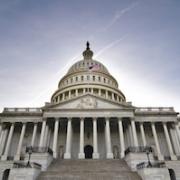 Legislation could be enacted this year that would allow 403(b) plans to form and join pooled employer plans (PEPs) for the first time. A panel at the 2022 NTSA Summit in Phoenix offered a deeper dive.
Legislation could be enacted this year that would allow 403(b) plans to form and join pooled employer plans (PEPs) for the first time. A panel at the 2022 NTSA Summit in Phoenix offered a deeper dive.
Panelists included Kendra Bragg, Senior Relationship Manager, Newport Retirement Services; Chris Janeway of PlanMember; and Brent Neese, Senior Vice President, Retirement Services, PlanMember Services and former NTSA Executive Director.
In an earlier Summit session, American Retirement Association CEO Brian Graff told attendees that prospects are “significant” that SECURE 2.0 could be passed and enacted this year, and that one of the provisions of that bill would allow 403(b) plans in PEPs. Similarly, ARA Chief Content Officer Nevin Adams cited that possibility in another session. Like Graff and Adams, Neese said that it is possible that the SECURE 2.0 legislation may be enacted this year.
So—what is a PEP?
A key provision of the SECURE Act that became effective in 2021 allows employers from completely unrelated industries of any size to pool their retirement plans into a single 401(k) plan. Each employer that participates can choose from flexible options to tailor key plan design elements.
Why Be Part of a PEP?
The benefits of a PEP, said panelists, include:
- Pooling assets into a single larger plan creates economies of scale and reduced cost.
- It reduces administrative burdens.
- Instead of each member of the PEP undergoing an audit of their plans, there is a single plan audit. “With a PEP, there is only one audit, which is very attractive,” said Janeway.
- rather than each member filing a Form 5500, the PEP files a single Form 5500.
Not only that, Bragg pointed out, another advantage of being part of a PEP is relief from additional fiduciary responsibility. And Janeway added that for start-up plans, much of the difficulty that start-up plans experience in starting a retirement plan.
And there could be ample opportunity, Bragg suggested, commenting that there is no limit to the number of plans that can be part of a PEP.
- Log in to post comments
